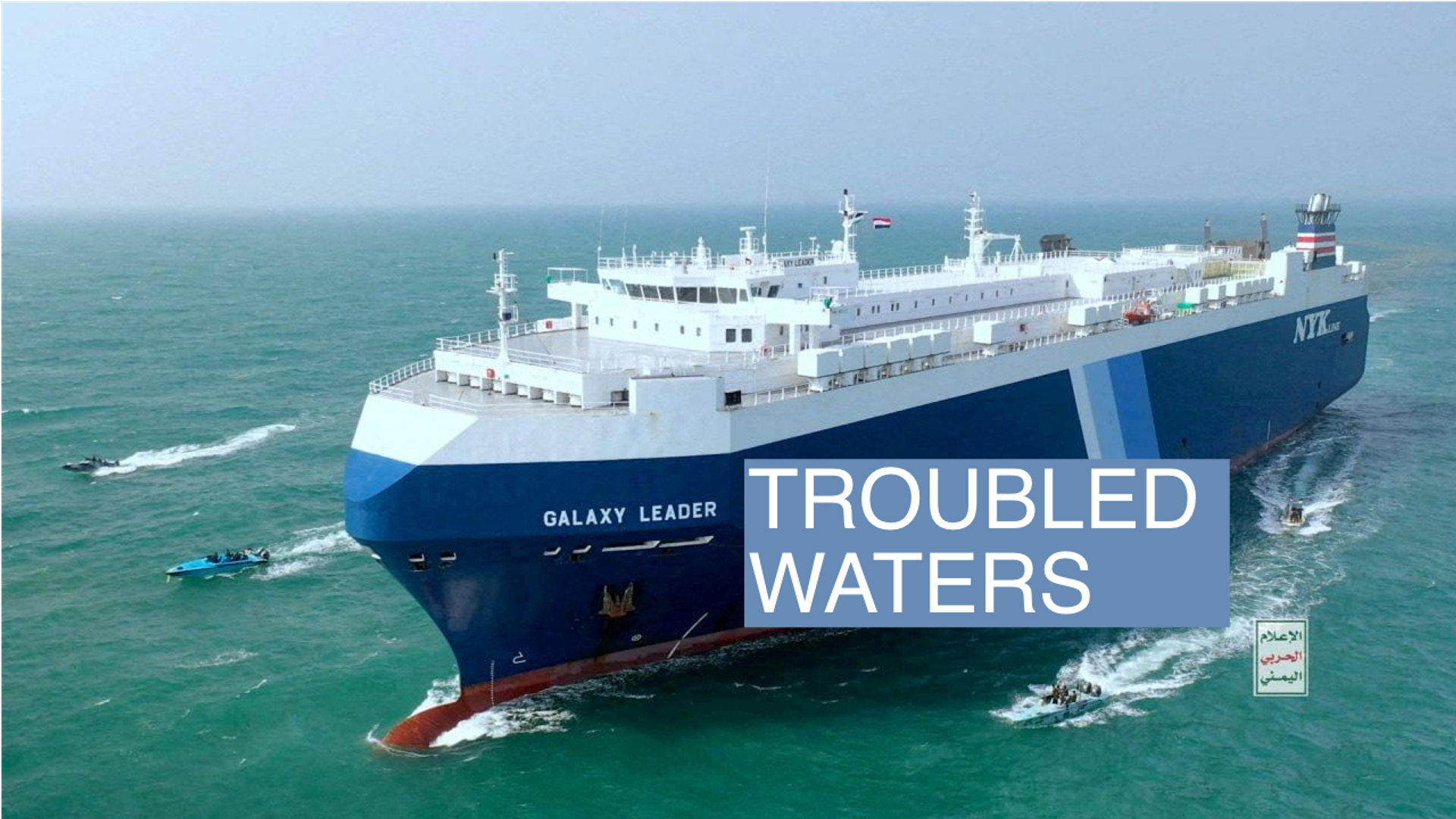The News
The U.S.-led task force to protect commercial ships from increasing Houthi attacks in the Red Sea is facing challenges with American allies and Arab nations reluctant to join the maritime alliance over fears of expanding the Israel-Hamas war.
The shipping lane is critical for the global economy, seeing around 12% of global trade pass through the strait every year. But the Iran-backed militia has escalated attacks on vessels passing through the Red Sea, targeting those that they believe are Israel-bound and threatening global maritime trade.
The Pentagon has said that at least 20 countries are part of Operation Prosperity Guardian, but some nations have not confirmed their participation and others have resisted joining the U.S.-led effort, Reuters reported.
SIGNALS
U.S. allies worried about fueling wider conflict
European and Indo-Pacific powers are wary of joining the Red Sea task force over “worrying signs of a potential major escalation,” according to Al Jazeera. Although the U.S. has a strong naval presence in the region, Washington has “political unwillingness” to counter Houthi attacks alone as that could likely be interpreted by Arab governments as “direct military action in aid of Israel.” U.S. allies — many of whom are already economically burdened and low on weapons reserves because of the Ukraine war — are hesitant to commit to a U.S.-led deterrence mission because of Washington’s historical lack of credibility in mitigating conflict in the region. Spain, Italy, and France have all expressed hesitation at participating in the task force, and Australia has rejected Washington’s request for more warships in the Red Sea.
Saudi Arabia watches ‘from the sidelines’
U.S. security efforts in the Red Sea are weakened by the absence of Saudi Arabia, one analyst told the Guardian. Despite being a historic rival of the Houthis, the nation has refrained from participating in the alliance. The Saudis’ years-long military campaign against the Houthis caused a devastating humanitarian crisis in Yemen, but now the country would rather watch the situation in the Red Sea “from the sidelines” as it prioritizes brokering peace with the rebel group, the New York Times reported. Crown Prince Mohammed bin Salman wants to turn the kingdom into a global business hub by 2030, and having Houthi missiles strike Saudi towns or escalating tensions with Iran is “the last thing the prince needs as he seeks to convince tourists and investors that the Islamic kingdom is open for business,” the Times wrote. All other Arab countries — except for Bahrain — have also refused to publicly endorse the task force, likely because doing so would anger their citizens who would see it as indirectly supporting Israel in the Gaza war, one analyst told the Jerusalem Post.
Europeans should expect higher prices for goods
Major shipping companies have already announced temporary plans to reroute vessels around Africa, leading to a 35% decrease in goods flowing through the Red Sea. Soaring insurance premiums and delays in getting goods to shelves means consumers, especially those in Europe, can expect to see prices double in the coming weeks, analysts told German broadcaster Deutsche Welle. Others believe that the global economy is more resilient to trade disruptions following the COVID-19 pandemic. European markets are already prepared for a further drop in Chinese exports as factories wind down for Lunar Year preparations, according to Bloomberg. China, which has a military base near the Red Sea, has not said it will participate in the task force. “The best the world can hope for may be a moderate risk scenario, in which shipping is diverted for at least several months until the security situation in the Red Sea stabilizes,” Bloomberg Economics analysts wrote.

